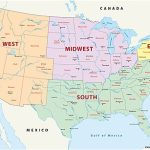
Walter Olson
Number seventeen in our series of occasional roundups on election law and policy:
The Supreme Court agrees to review a Fifth Circuit panel decision finding that Congress’ naming of a uniform national election day makes it unlawful for states to accept some ballots posted by that date but received later, as roughly 30 states do. [SCOTUSBlog on Watson v. Republican National Committee]
Trump: Congress may never have passed a bill making documentary proof of US citizenship part of the national mail voter registration form. But I’ve got the people’s mandate, so I’m just going to do it right now by executive order. Federal judge: No, you have no such power. Permanently enjoined. [October 31 ruling by Judge Colleen Kollar-Kotelly (D.D.C.), told you so in March and again in September]
By a 36–64 margin, voters in Maine clobbered a conservative-backed package of electoral reforms that would have curtailed absentee voting and drop boxes as well as required voters to show identification at the polls. [Maine Public Radio]
“I would rather just stand on principle and stand on my morals and ethics,” said Kansas State Representative Brett Fairchild, a conservative Republican who isn’t going along with his party’s demand for mid-decade redistricting. “That way I can actually look at myself in the mirror and sleep at night. It’s not all just about getting re-elected.” [New York Times] Maryland Senate Majority Leader Bill Ferguson (D‑Baltimore) did something principled, and now he must pay the price. [Lauren Egan, The Bulwark; my Substack]
“Modernizing Voter List Maintenance: An Evidence-Based Framework for Access and Integrity” [Michael Morse, Rachel Orey, and Joann Bautista, Bipartisan Policy Center]
Claim: Donald Trump’s push to abolish the Senate filibuster is motivated in substantial part by a desire to enact changes in federal election law by simple majority. [Bob Bauer]






